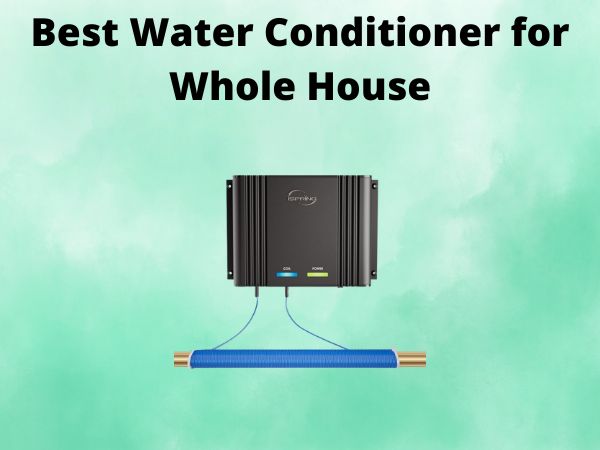What Size Solar Generator Do I Need? Tips for Choosing
Table of Contents
What Size Solar Generator Do I Need? Tips for Choosing
Are you considering a solar generator but unsure about what size you need? It’s a common conundrum that many people face when trying to make the environmentally and wallet-friendly switch to solar power. This guide is here to break it down for you in a simple, understandable way. We’ll explore everything you need to know about solar generators, weigh the factors you need to consider, and help you determine just what size solar generator will suit your needs best.
Understanding Solar Generators
What is a Solar Generator?
Think of a solar generator as your eco-friendly power plant—a compact unit that harnesses the sun’s power to generate electricity. Unlike traditional generators that rely on fossil fuels, solar generators use solar panels to collect and convert solar energy into electricity stored in batteries, ready for you to use whenever you need it.
How Does a Solar Generator Work?
It’s simpler than you might think. Solar panels capture sunlight and transform it into direct current (DC) electricity. This DC power is then directed to a solar inverter, which converts it into the alternating current (AC) power that can be used by your home appliances. The excess energy is stored in the battery for future use.
Benefits of Using Solar Generators
Beyond the obvious benefit of reducing your carbon footprint, solar generators offer a host of advantages. They provide a silent, emission-free energy source, making them perfect for both home use and outdoor adventures. Plus, they offer a reliable backup power solution during outages and can save you money on energy costs in the long run.
Factors to Consider When Choosing a Solar Generator
Power Needs
Before purchasing a solar generator, you must first evaluate your power needs. What devices do you plan to power, and for how long? This will greatly influence the generator size you require.
Types of Solar Generators
Solar generators come in various types, each suited for different scenarios. There are portable models for on-the-go use and larger, stationary models ideal for home or emergency use.
Battery Capacity
The battery capacity of a solar generator is a crucial factor. Measured in watt-hours, it determines how much energy your generator can store. The higher the capacity, the longer it can run your devices.
Portability
If you’re planning to use your solar generator on camping trips or outdoor adventures, portability is key. Look for compact, lightweight designs with handles or wheels for easy transport.
Number of Outputs
Consider the number of devices you need to power simultaneously and ensure your generator has enough output ports to accommodate them all.
Calculating Your Energy Requirements
Understanding Wattage
Wattage is the measure of power consumption. To determine the right generator size, calculate the wattage of all the devices you plan to use. Add them up for a total wattage figure.
Energy Consumption of Common Devices
A light bulb might use 60 watts, while a refrigerator could use up to 800 watts. Understanding the consumption of each device you plan to connect to your generator is crucial for proper sizing.
Selecting the Right Size Solar Generator
Small Solar Generators
Perfect for charging small devices like phones, laptops, and LED lights. These generators are great for minimal energy needs and excellent for travel.
Medium Solar Generators
These can power small appliances, providing a great solution for RV trips or short-term power outages. They’re a step up in capacity and functionality.
Large Solar Generators
Ideal for home backup systems, capable of running larger appliances like refrigerators and even power tools during outages. These are heavy-duty options for substantial energy requirements.
Steps to Properly Size Your Solar Generator
Start with a list of all the devices you plan to power. Note their individual wattage requirements and compute the total. Include considerations for the running time of each device to ensure your generator can handle your needs.
Features to Look For
Durability
Check for robust build quality. Your solar generator should withstand various weather conditions, especially if you plan to use it outdoors frequently.
Expandability
This feature allows you to add additional battery packs or solar panels, increasing the capacity and versatility of your generator.
Compatibility with Solar Panels
Ensure your solar generator works seamlessly with various solar panel setups. This flexibility will make your life easier when upgrading or replacing components.
Maintenance Tips for Solar Generators
Even the best solar generator needs regular upkeep. Store it in a cool, dry place, and periodically check battery life. Clean solar panels regularly to maintain efficient energy absorption.
Conclusion
Choosing the right size solar generator boils down to understanding your energy needs and aligning them with your lifestyle habits. Whether you’re preparing for emergencies, planning a road trip, or looking to reduce your electricity bills, a well-chosen solar generator can be your green ticket to energy independence. Making an informed decision ensures you seize the sun—not just the moment.
FAQs
Can a solar generator power my entire household?
While large solar generators can handle essential appliances, completely powering an entire household may require a more extensive solar power system.
Is a portable solar generator good for camping trips?
Absolutely! Portable solar generators can keep your devices charged and provide lighting during camping trips, making them a popular choice for outdoor enthusiasts.
How do solar generators perform in cloudy weather?
Even in cloudy weather, solar panels can collect some energy, although efficiency may be reduced. It’s wise to have a fully charged generator before cloudy periods.
What is the lifespan of a solar generator?
A solar generator can last anywhere from 5 to 15 years, depending on usage frequency, maintenance, and the quality of components used.
Are solar generators silent?
Unlike traditional generators, solar generators operate silently, which is a significant advantage for both indoor use and situations where noise could be a disturbance.





